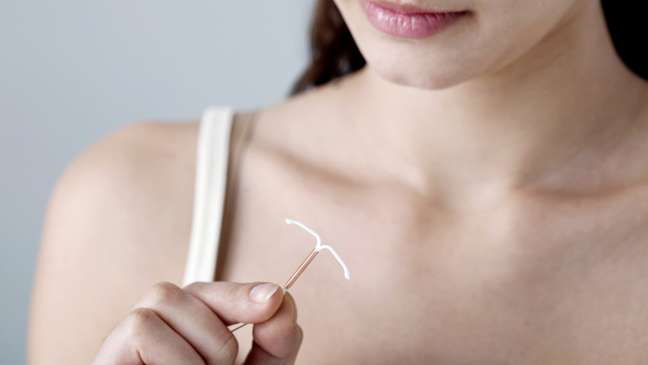Specialists clarify the main doubts and explain the difference between contraceptive methods. Learn more about the intrauterine device (IUD)

or intrauterine device (IUD) It is a safe, effective and reversible method of contraception. It is offered by the public health network and is affordable. Despite everything, according to data from the Ministry of Health, only 1.9% of women of childbearing age use the mechanism in Brazil. The reason, perhaps, is the lack of information, which raises many doubts and insecurities on the subject.
“He [DIU] It is mainly recommended when the use of hormonal contraceptives is contraindicated, due to the action of estrogens, which can increase the risk of thrombosis when there is a predisposition. This type of device is a good alternative to prevent pregnancy, with an efficiency of up to 99% of protection, which is only a 1% chance of failure, “explains Dr. Paula Fettback, gynecologist and obstetrician.
To clarify the questions about the intrauterine device, we brought together experts who answered the main questions on the subject. Watch:
Advantages of the IUD
- The effectiveness is great;
- It has practicality and long life;
- It doesn’t depend on remembering or forgetting to take medications;
- Sexual intercourse and intimate contact are not affected;
- The method is reversible and fertility returns after removal;
- Frequent changes are not necessary;
- It is possible to breastfeed without problems;
- Side effects are minimal.
Disadvantages of the IUD
- Only a doctor can insert and change the device;
- The process can be awkward;
- It does not protect against sexually transmitted diseases;
- For short-term protection, it’s not really worth it;
- Inadequate procedures and without medical monitoring can cause health complications.
The difference between Copper IUD and Mirena IUD
The copper, or silver, IUD is the most traditional intrauterine device. It uses no hormones and its side effects are minimal. According to Dr. Fettback, contraindications are usually related to possible problems in the formation of the uterus and failure to adapt to the device, which can cause cramps and discomfort in rare cases. Mirena, on the other hand, is more suitable for women who do not want or cannot have menstruation. It uses the gradual release of hormones in the uterus.
Does the IUD fight endometriosis?
According to César Patez, gynecologist and obstetrician, the intrauterine device can relieve some symptoms of the disease. “It is a disorder in which the tissue that normally lines the uterus grows outside the organ. In endometriosis, tissue can be present in the ovaries, fallopian tubes, bladder, intestines and other organs. The IUD, a small, T-shaped plastic object that works as a contraceptive, is effective in treating this condition, “he says.
Can the intrauterine device cause acne?
According to the specialist, acne is one of the side effects caused by the Mirena IUD. “This type of IUD is made with the hormone progesterone, and it is very harmful to women’s skin and hair. Progesterone makes the skin a little more oily, causing the tendency to get acne,” he says. However, the symptom is relatively common in the first few weeks and tends to disappear quickly.
Source: Alto Astral
Source: Terra
Benjamin Smith is a fashion journalist and author at Gossipify, known for his coverage of the latest fashion trends and industry insights. He writes about clothing, shoes, accessories, and runway shows, providing in-depth analysis and unique perspectives. He’s respected for his ability to spot emerging designers and trends, and for providing practical fashion advice to readers.








